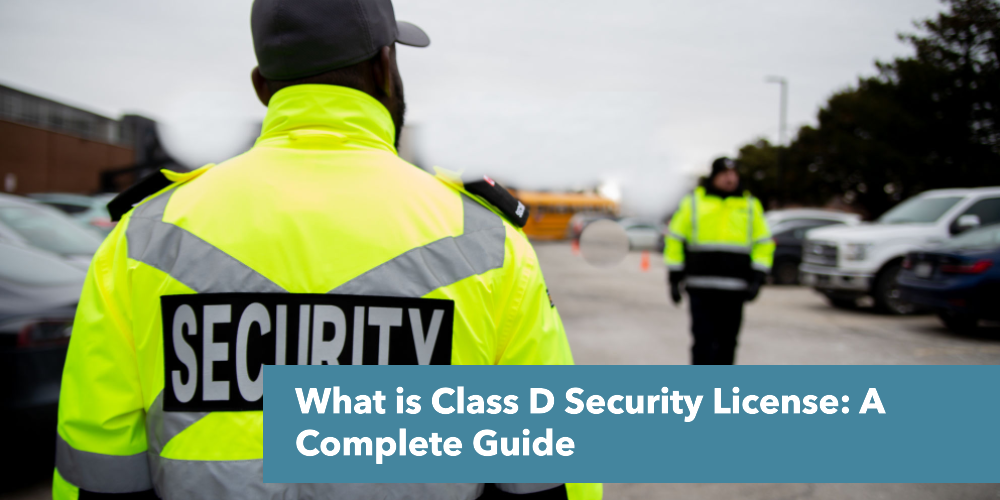What is Class D Security License?
A Class D Security license in Florida permits you to work as an unarmed security professional in roles like patrolling, monitoring premises, or conducting surveillance. To qualify, you typically need to be at least 18 years old, pass a criminal background check (no felony convictions), and complete state-mandated training (often 4–40 hours, depending on your state).
What is the Cost of the Class D Security License ?
The overall cost to obtain your Guard Card generally ranges from approximately $130 to $190. This estimate includes training, application, and Live Scan fees. Keep in mind that these figures can vary based on the training provider and Live Scan location you choose.
Training Fees
8-Hour “Power to Arrest” Course: This mandatory pre-licensing training typically costs between $25.99 and $75, depending on the provider
Application Fee:
Bureau of Security and Investigative Services (BSIS) Application: A non-refundable fee of $55 is required when submitting your application to the BSIS.
Live Scan (Background Check) Fees:
Department of Justice (DOJ) Fingerprint Processing: $32
Federal Bureau of Investigation (FBI) Fingerprint Processing: $17
Live Scan Operator Fee: This varies by location but typically ranges from $20 to $40.
Is it Getting a Class D Security License Worth It?
Obtaining a Class D Security License is worth it if you seek entry-level roles in unarmed security, with average salaries ranging from $30,000–$40,000 annually (varies by state). Costs are low ($50–$100 for licensing, plus 4–40 hours of training), and it opens doors to flexible jobs in retail, events, or construction. However, it may not suit you if you prioritize higher pay (armed roles require additional licenses) or dislike irregular hours. Renewal fees ($30–$75 every 2–3 years) and steady demand (5% job growth projected for security roles by 2031) add long-term value. Assess your career goals and local job market before deciding.
How to Get Class D Security License?
To get a Class D Security License, follow these steps:
Check State Requirements: Confirm eligibility criteria in your state. Most require you to be 18+ (some states mandate 21+), pass a criminal background check (no felonies), and complete 4–40 hours of state-approved training (e.g., Florida: 24 hours, Texas: 6 hours).
Complete Training: Enroll in a state-certified course covering legal guidelines, patrol procedures, and emergency response. Training costs $50–$200 and is available online or in-person.
Submit Application: Provide proof of training, fingerprints, a valid ID, and fees ($50–$100) to your state’s licensing board (e.g., Florida Division of Licensing). Some states require passing an exam (e.g., Florida’s 48-question test).
Await Approval: Processing takes 2–6 weeks, depending on the state (e.g., Georgia: 10 days, California: 30 days).
Renew as Needed: Licenses expire every 2–3 years; renewal fees range $30–$75, and some states require continuing education (e.g., 4 hours annually in Texas).
Note: Certain states (e.g., Alabama) require employer sponsorship. Check your state’s licensing authority website for exact steps.

